Aesop lived during a period of remarkable cultural and intellectual resurgence in Greece. He was friends with the first philosophers, the Seven Sages, who began questioning the gods' supreme powers over the fate of humans.
They spoke of common sense and personal responsibility, and introduced the novel idea that we, not the gods, are responsible for our actions.
This concept became the underlying theme in Greek theatre, as well as the base for Aesop's morals.
There is very little documentation on Aesop's life. The Aesop Romance, written in the 2nd century of unknown authorship, describes Aesop as “potbellied, misshapen of head, snub-nosed, swarthy, dwarfish, bandy-legged, short-armed, squint-eyed, and liver-lipped."
It's unclear where Aesop was born. Some say Asia Minor, some say he was Ethiopian. The philosopher Aristotle figured he was from Thrace, near the Black Sea. He was most certainly a slave in Samos, near Greece, owned by a man called Xanthus who freed him because of his clever way with words.
He traveled and was active in Athens' politics. He advised statesmen and was friends with the philosophers who preached ethics and moral responsibility. His stories and morals were warnings to a society he considered lax in its ways. He used animals to act out human faults because he did not want to offend, just make people aware of the possible consequences of their actions.
Most all of Aesop's stories are adaptations from local lore, chosen because they fit his morals. After his death many other fables were attributed to him. One which is most likely an original is The Frogs Who Wanted a King, to warn the people of Athens to be careful who they supported as their leader. After his death several scholars attempted to write down what they remembered, even Socrates put some of the stories into verse while in prison. Aesop is mentioned by the poets Aristophanes and Sophocles, and by the historian Diogene Laertius.
What we know today as “Aesop’s Fables” was first assembled around 300 BC by the Greek statesman and philosopher Demetrius Phalereus. They were put to prose in Latin by Phaedrus, a freed slave, around 25 BC, which were translated into Greek by Babrius, a writer allegedly from Rome who may have lived around the 1st century. In the 13th century the fables were translated into Arabic and Hebrew(Zerechiah ha-Nakadan added biblical quotations). In the 1600s they were translated in Chinese by Zhang Geng, and were the inspiration for Fables Choises by the French poet Jean de La Fontaine.
La Fontaine’s adaptations are hugely popular in France, in particular The Fox and The Crow.
Aesop
7th century BC
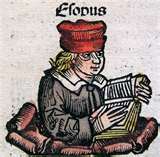
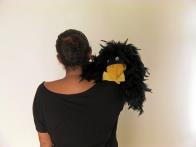


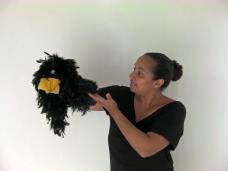
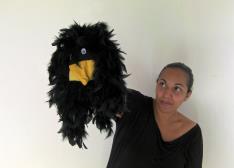
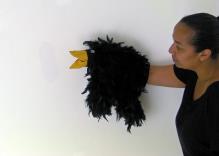


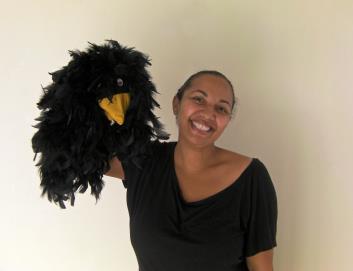
Le Corbeau et le Renard
Maître Corbeau, sur un arbre perché, tenait en son bec un fromage.
Maître Renard, par l'odeur alléché, lui tint à peu près ce langage :
"Hé ! bonjour, Monsieur du Corbeau. Que vous êtes joli ! Que vous me semblez beau !
Sans mentir, si votre ramage se rapporte à votre plumage,
Vous êtes le Phénix des hôtes de ces bois."
A ces mots le Corbeau ne se sent pas de joie et pour montrer sa belle voix,
Il ouvre un large bec, laisse tomber sa proie.
Le Renard s'en saisit, et dit : "Mon bon Monsieur, apprenez que tout flatteur
Vit aux dépens de celui qui l'écoute : Cette leçon vaut bien un fromage, sans doute. "
Le Corbeau, honteux et confus, jura, mais un peu tard, qu'on ne l'y prendrait plus!